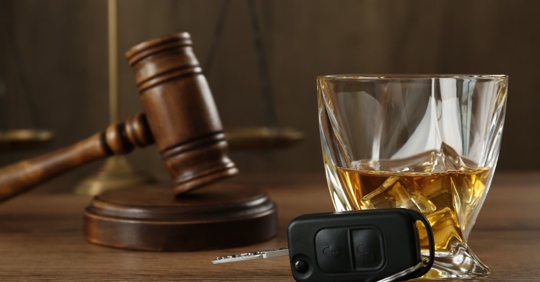Understanding DUI Laws for Minors in Texas
Texas has specific laws that govern DUI offenses involving minors, which differ significantly from those applicable to adults. These laws reflect the state's commitment to addressing underage drinking and driving, emphasizing the need for strict penalties and educational programs to deter such behavior.
For instance, a minor charged with DUI may face consequences such as license suspension, mandatory alcohol education programs, and community service. It's crucial for parents and guardians to understand these laws to better support their children during legal proceedings.
Potential Penalties for Minors Charged with DUI
The penalties for minors convicted of DUI in Texas can be severe, aiming to discourage underage drinking and driving. These penalties can include fines, community service, mandatory alcohol education classes, and even jail time in more serious cases.
Additionally, a DUI conviction can lead to long-term consequences, such as a criminal record that may impact future employment opportunities and educational prospects. Understanding these potential penalties is vital for minors and their families as they navigate the legal system.
Steps to Take After a Minor is Charged with DUI
If a minor is charged with DUI, it is essential to take immediate and informed steps to address the situation. The first step is to consult with a qualified attorney who specializes in juvenile DUI cases to understand the legal rights and options available.
Following legal counsel, families should gather any relevant documentation and evidence related to the incident, such as police reports and witness statements. This preparation can significantly impact the outcome of the case and help in negotiating reduced penalties or alternative resolutions.
The Importance of Legal Representation in Juvenile DUI Cases
Having legal representation is crucial for minors facing DUI charges, as the complexities of the law can be overwhelming. A skilled attorney can provide guidance through the legal process, ensuring that the minor's rights are protected and that they receive a fair trial.
Moreover, an attorney experienced in juvenile cases can advocate for alternatives to traditional penalties, such as diversion programs that focus on rehabilitation rather than punishment. This approach not only helps the minor avoid a criminal record but also addresses the underlying issues related to underage drinking.

